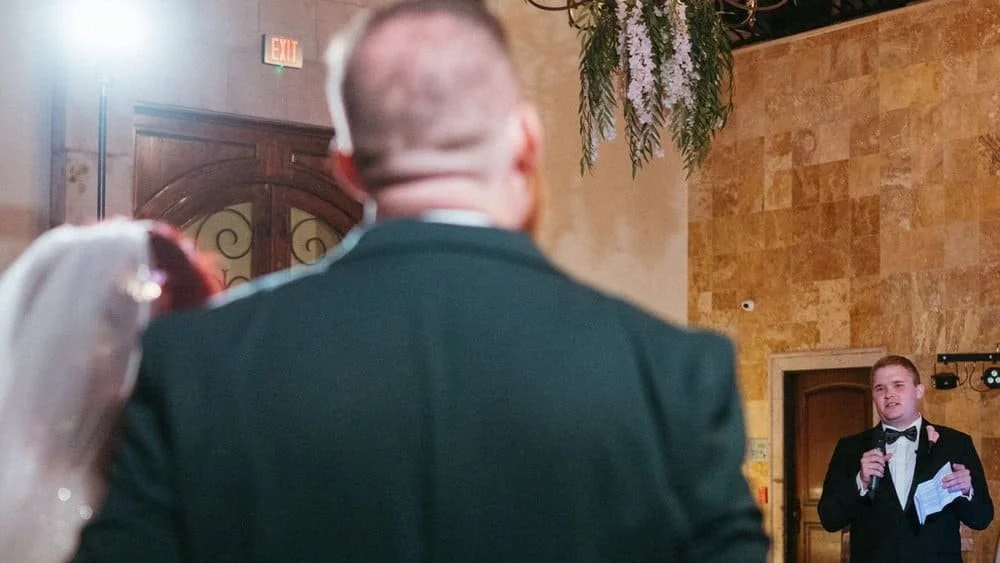If you spend time on YouTube, it’s not difficult to find examples of “The FUNNIEST Best Man Speech Ever” and “The GREATEST Best Man Speech of All Time.”
If delivering a best man speech is in your future, maybe you’d be happy with simply surviving your moment in the spotlight and avoiding a starring role in a “The Worse Best Man’s Speech Ever!” video.
Anxiety about public speaking is perfectly normal, and the idea of influencing the success of a dear friend or family member’s wedding day can be even more nerve-wracking.
The good news is, not only can you get through this, but with some planning, time, and practice, you can give a wedding speech that truly enhances the joy of the day.
Here’s our advice for delivering a successful best-man speech.
Big Picture
First of all, it helps to know what you can expect and have an overall idea of how to approach your speech.
When the time comes to take the microphone, start by introducing yourself and thanking the bride and groom for the honor of being chosen as the best man. Then share a few personal remarks about the couple, such as how long you’ve known them, how they met, and what qualities make them an ideal match for each other.
You can also share one or two unique stories or anecdotes that will be enjoyable to guests who don’t know the couple well.
After conveying these personal sentiments, you can conclude with a traditional blessing or call to everyone to raise their glasses in a toast.
Your overall tone should be uplifting and optimistic about the couple's future together and their ability to handle what life throws their way.
After that, take your seat and relax. Mission accomplished.
That’s the goal, here are some tips for getting there.
Time to Write: Consider Your Audience
Now that you have the basic elements of your speech — introducing yourself, insights about the couple, thoughts about why they’re a great couple, a brief story, and a blessing or call to raise glasses — write out your thoughts.
If you’re plagued with writer’s block, try to write something—even if you don’t think it’s very good—to get your thoughts on paper. Later, you can go back and play editor, smoothing and enhancing what you’ve written.
A note about humor: It can enhance a speech, but if you’re not comfortable telling jokes, this is not the time to try it. The goal is for you to be comfortable and natural. And if you do want to include a joke or two, make sure they’re appropriate and not potentially hurtful to the bride or groom.
When you re-read your rough draft for the speech, ask yourself a few questions. Does anything need to be explained in more detail for people who don’t know the bride and groom well? Have I written anything that could embarrass or hurt the feelings of the newlyweds or the guests? Is the overall message one of encouragement and wishing the couple well? Does this speech sound like me, or is it overly formal? Am I talking too much about myself instead of the bride and groom? Adjust accordingly.
Remember, you always can run your draft by one or two people you trust for their input and suggestions.
Set Yourself Up for Success
Once you’re satisfied with your speech, start practicing it. The more practice the better: It will boost your confidence and ease your nerves when your moment to speak arrives. That said, we do recommend bringing a printout of the speech with you to the wedding. It will be a lifeline in case you lose your place or go blank.
You’ll also be doing yourself a favor if you make a point of getting a good night’s sleep before the wedding and go easy on the alcohol so you’re not hungover or drunk when you speak. You want to be at your best when you speak.
Keep these guidelines in mind, and your speech—even if it never appears on YouTube—will be remembered in a positive light.

